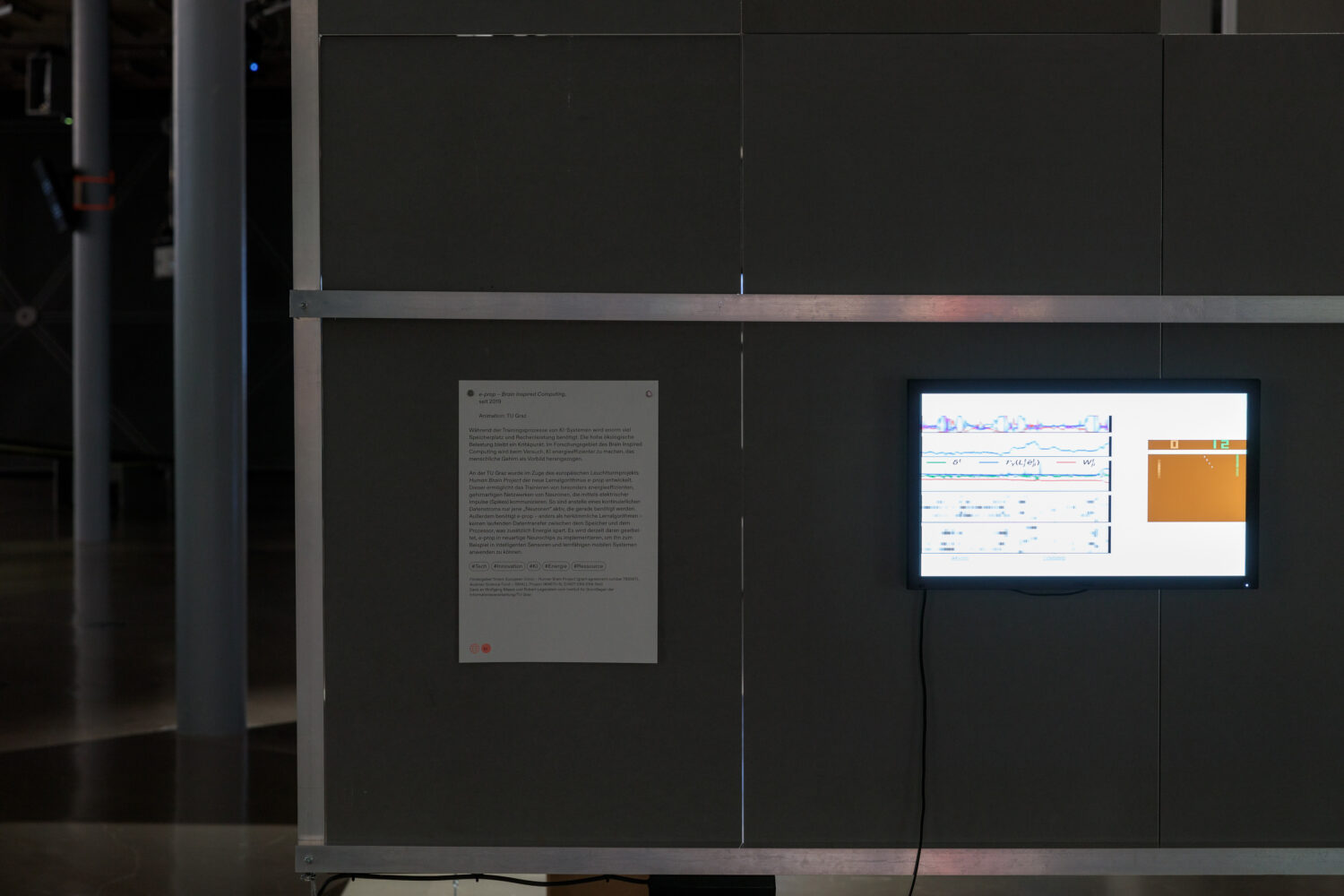A huge amount of storage space and computing power is needed during the training processes of AI systems. The serious ecological impact of this remains an issue. Researchers in the field of Brain Inspired Computing are using the human brain as a model in an attempt to make AI more energy-efficient.
The new learning algorithm e-prop was developed at Graz University of Technology as part of the European lighthouse project Human Brain Project. This enables the training of particularly energy-efficient, brain-like networks of neurons that communicate by sending short electrical impulses (spikes). Instead of a continuous data stream, only the ‘neurons’ that are currently necessary are active. What’s more, e-prop – unlike conventional learning algorithms – does not require constant data transfer between the memory and the processor, so saving additional energy. Work is currently in progress to implement e-prop in new types of neurochips so that it can, for example, be used in intelligent sensors and adaptive mobile systems.
e-prop – Brain Inspired Computing, from 2019
Animation: TU Graz
Funded by: European Union – Human Brain Project (grant agreement number 785907), Austrian Science Fund – SMALL Project (#I4670-N; CHIST-ERA ERA-Net) With thanks to Wolfgang Maass and Robert Legenstein of the Institute of Theoretical Computer Science/Graz University of Technology.








